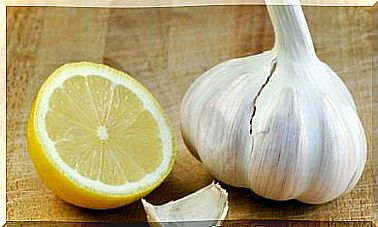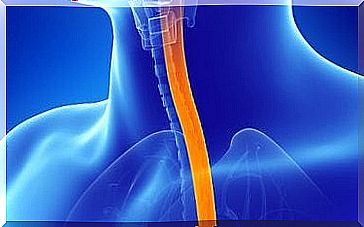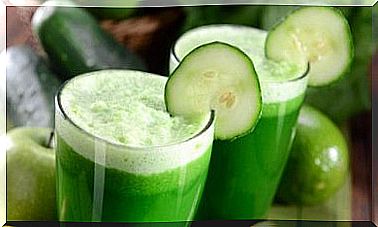Natural Foods Against Memory Loss
The risk of memory loss increases with age, but good nutrition, sufficient exercise and healthy lifestyle habits can keep your memory fit and healthy for longer.

As people get older, they worry because memory disorders are the first sign of Alzheimer’s or other dementias. But it can also simply be a normal symptom of aging. Today we introduce you to various foods that work against memory loss and can be very helpful in combination with other measures.
At first, many are not even aware that they forget things faster or that they need more time to learn new things. You can keep your memory fit and healthy through healthy lifestyle habits, sufficient exercise, brain training and a balanced, varied diet.
Reasons for memory loss

Various memory problems arise from health ailments that can be treated. This includes:
- Vitamin B12 deficiency
- chronic alcoholism
- tumor
- Infections
- Blood clots in the brain
- possible dementia
- traumatic brain injury
- Cancer (chemotherapy or radiation therapy)
- stress
- Anxiety or depression
All of these ailments can make one more forgetful or confused, which could be mistaken for a cognitive disorder. Radical life changes are also among the influencing factors.
The most common symptoms of memory loss include:
- Often personal items are misplaced and can no longer be found.
- Difficulty finding the right words.
- You repeat the same questions in a conversation or tell the same story several times.
- You don’t remember whether you have already done something (e.g. taking a medicine).
- One is disoriented or lost in familiar places.
- The year or day of the week are mixed up.
- It is difficult to remember appointments or events.
- You have trouble following instructions or making decisions.
Temporary or permanent memory loss
The temporary loss of memory manifests itself as the forgetting of information, which, however , is available again in the memory after the amnesia. It is a temporary loss of memory.
- If you can’t remember a name right away, but an hour later, or if you wake up and don’t know what was going on the night before because you drank too much, this is called a limited memory loss.
In the event of permanent memory loss, the information has definitely been lost. You cannot remember it, even if someone else repeats the information, for example where the keys were left or that your mother was visiting the day before.
What can be done to prevent memory loss?
The following habits are most effective against memory loss and as a precaution against Alzheimer’s or other dementias:
- Sufficient sleep and good quality sleep
- Healthy eating
- Sufficient exercise
- An active social life
- Brain training
The brain works much like a muscle: when it is used and exercised, it stays fit. However, if the brain does not get the right nutrients or enough oxygen, it loses cognitive abilities.
Therefore, living an active, healthy life is essential to maintaining memory.
Other factors, such as a healthy sleep or regular reading, promote cognitive health. However, unhealthy habits such as alcohol, tobacco or other drugs are not only harmful to the brain, but also to general health.
Help and assessment of memory loss
It often happens that the person concerned is not aware of the problem and that family members discover it. Anxious and depressed people often focus on their mistakes and therefore sometimes believe they have memory problems when they don’t.
However, if there is difficulty with everyday tasks, for example if the person is confused or disoriented, they should be examined by a doctor.
The doctor will make an accurate diagnosis and recommend appropriate treatment. The examination should always be carried out by a specialist.
Natural foods for memory loss
Various foods support the memory function and should therefore not be missing in a varied, balanced nutrition plan.
nuts
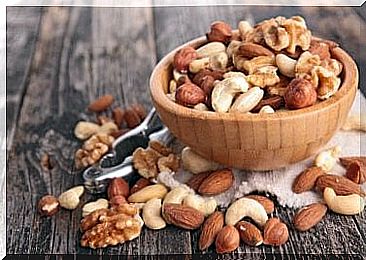
The natural fats in dried fruits have anti-inflammatory effects and protect the brain. They are therefore also useful as a precaution against memory loss.
Make a mixture of the following dried fruits and eat a handful of them every day.
- Almonds (50 g)
- dried peaches (30 g)
- Macadamia nuts (50 g)
- Walnuts (20 g)
Don’t forget that the dried fruits should be natural (without zalz and not roasted).
Carrots
Carrots are high in carotene, an important nutrient for the brain. This can be used to prevent memory loss and to keep the brain fit.
- Eat at least one raw or cooked carrot a day to help maintain memory.
Apples
Apples are rich in iron and vitamins. The shell contains the natural pigment quercetin, which prevents memory loss at any age.
- Eat an apple every day to maintain your memory and general health. You can also use apples in salads, cakes, or many other recipes to benefit from all of their positive properties.
basil
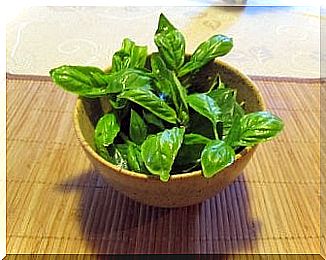
Basil is characterized by its calming, relaxing effects and is therefore an excellent aid against stress. Basil leaves act as an adaptogen and can improve mental and physical performance.
You can make a basil tea:
ingredients
- 1 teaspoon basil (5 g)
- ½ cup of water (125 ml)
preparation
- Bring the water to a boil and use it to scald the basil leaves.
- Let it steep for 7 minutes and then pour it through a sieve.
- Drink half a cup after each meal.
Memory is one of the most important cognitive functions, so you should care for and protect it as much as possible!




